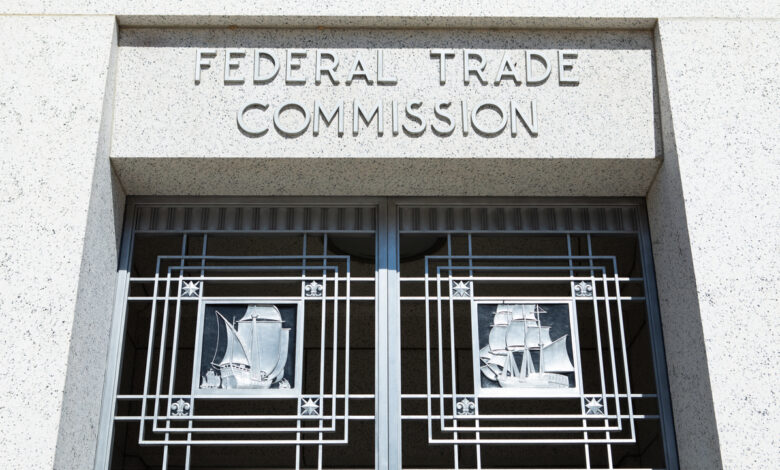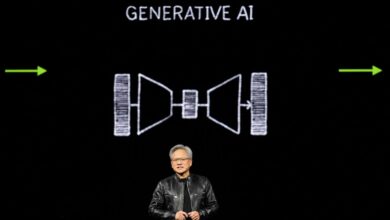DOJ and FTC Ready to Rumble Over AI Dominance

The Justice Department and the Federal Trade Commission (FTC) are reportedly gearing up to unleash their antitrust hounds on Microsoft, OpenAI and Nvidia, according to a Wednesday (June 5) report from The New York Times.
These tech behemoths have been driving artificial intelligence (AI) innovation, but now face new scrutiny as regulators investigate whether their dominance is squeezing competition in an industry poised to usher in a digital transformation for a multitude of businesses.
“It’s not official yet, but there are reports that the Justice Department and the FTC have agreed to investigate AI-related companies,” Omar Ochoa, an antitrust lawyer, told PYMNTS. “According to reports, the Justice Department would investigate Nvidia, and the FTC would investigate OpenAI and Microsoft. It’s actually very similar to what the FTC did with Big Tech companies several years ago, where they split up the investigation of Google, Apple, Amazon and Meta. Antitrust lawsuits were brought against each of those companies.”
Ochoa said he believes that history might be repeating itself with the AI industry.
“Now, seeing this happen again, but with AI, it is probably a good bet that some lawsuit or administrative action will occur from the investigations because, again, it mirrors what happened a few years ago with Big Tech,” he said.
“If these companies get slapped with an antitrust ruling, it could be a real game-changer for both the tech and AI industries,” Aron Solomon, a lawyer and chief strategy officer at the legal services firm Amplify, told PYMNTS. “We could see these giants getting split up or having their wings clipped, which would open the door for smaller players and newcomers to step up and shake things up.”
Solomon also pointed out that a ruling like this could force companies to rethink their business practices and partnerships, which could have a ripple effect on everything from supply chains to pricing and the availability of tech services and products.
“Companies might have to go back to the drawing board and figure out how to play nice with others,” he said.
DOJ Takes the Lead
In this antitrust tag-team match, the Justice Department will take on Nvidia, the largest manufacturer of AI chips, while the FTC will go toe-to-toe with OpenAI, the mastermind behind the ChatGPT chatbot, and Microsoft, which has been throwing around billions like it’s monopoly money to get in on the AI action.
But if the government wants to come out on top in these antitrust cases, they’ll need to bring their A-game and prove that these companies have been intentionally stifling their rivals.
“The government will need to bring the receipts and show how these companies have been actively trying to squash competition,” Solomon said. “It’s a tough fight, but not impossible. It all comes down to the nitty-gritty details of the case, the legal jiu-jitsu, and the regulatory climate.”
AI Under the Microscope
These investigations are just the latest in a string of antitrust probes targeting tech giants worldwide. Regulators in the U.S. and the European Union are leaving no stone unturned as they try to figure out if AI firms are using their muscle to dominate markets or give competitors the boot. The outcome of these probes will likely shape the future of competition and innovation in the AI industry.
The stakes are high when it comes to the potential impact on commerce.
“The comments from Congress, the White House, the FTC and the DOJ have all been that they are looking to get ahead of the AI curve and start enforcement actions and monitoring early, as opposed to waiting several years down the road and then developments occur that make it harder for them to undo business practices that have led to significant growth,” Ochoa explained. “Based on the comments made, the idea is not to stamp out AI and its development, but I think the idea is to regulate it early so that it doesn’t turn into an industry that’s unregulated and then difficult to regulate in the future.”
If the AI giants get broken up or have their powers limited, it could be a golden opportunity for smaller players and startups to swoop in and give them a run for their money. This could lead to lower prices for AI products and services, making them more accessible to businesses and consumers.
But if the investigations come up empty or the penalties are just a slap on the wrist, AI giants could keep tightening their grip on the market, leaving competition and innovation in the dust. This could mean higher prices, fewer options and a slower pace of progress in developing and deploying AI technologies across various sectors of the economy.
As for the likelihood of the government prevailing in these cases, Ochoa remained cautious.
“At this stage, it’s difficult to predict the outcome. The companies under investigation are the major players in AI development, making it challenging to anticipate the government’s approach and the potential cases they might bring forward,” he said. “However, it’s clear that the investigations are underway, and the industry will eagerly await further developments.”



